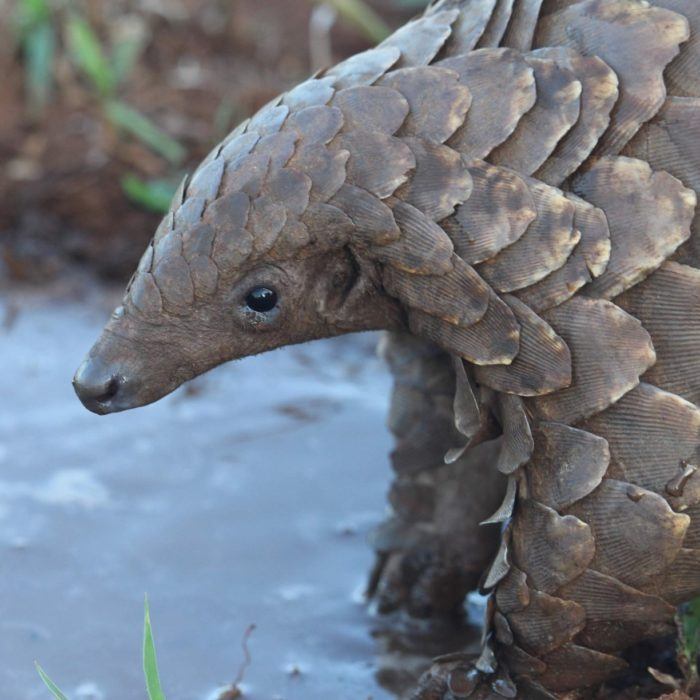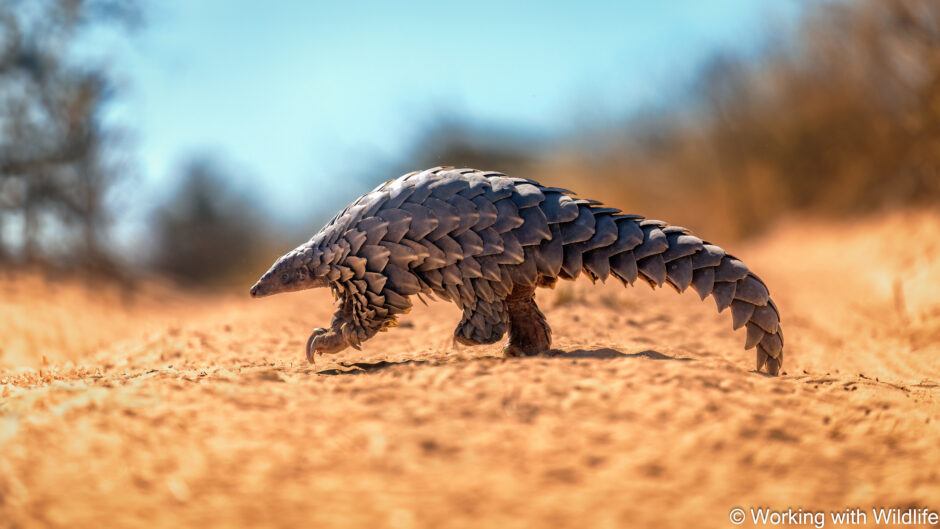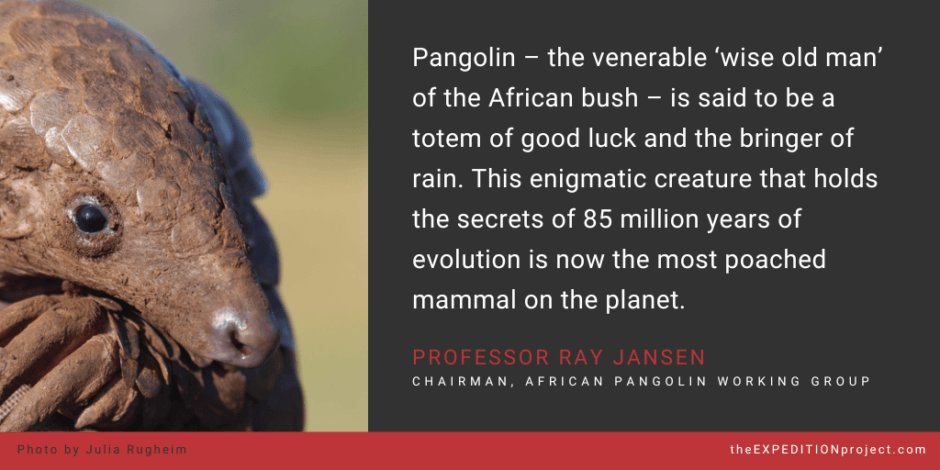The African Pangolin Working Group (APWG) returned a young female pangolin to the wild in KwaZulu-Natal recently. “The Temminck’s pangolin has not roamed Zululand for nearly 70 years so this is a historic moment for us and an incredible project of proactive conservation of an extremely endangered species,” said Frances Hannah, project coordinator at the Zululand Conservation Trust. The trust has given high priority to pangolin conservation, allocating funds to protect, rehabilitate and monitor these amazing animals.
The APWG team actually began saving pangolins from the illegal wildlife trade in 2009. But it was only in 2019 that they started reintroducing them into KZN, where they’d been locally extinct for decades. So far, this world-first effort to restore wild populations has been fruitful, as the moving tale of Cory shows.
Long, Slow Road to Recovery
Tragically, rescued pangolins tend to be ill and very stressed. Survivors receive intensive care at the Johannesburg Wildlife Veterinary Hospital, where a devoted team nurses them back to health. Once they are strong enough, the team takes them to a suitable reserve, where they begin a “soft release” process.


“The rehabilitation of the Temminck’s pangolin is an intensive programme,” explains Hannah. “The animals require around-the-clock monitoring to ensure they acclimatise, are finding suitable food and gain weight.”
“Once individuals arrive on site, they undergo a multistage soft release process which is tailored for each animal and can last up to four months,” adds Leno Sierra, Zululand field manager for APWG. “Thereafter, they are monitored very closely using specialised satellite tracking devices to track their movements.”
The team locates the pangolins daily to check their weight, tick load and general health.

How You Can Help Pangolin Conservation
As with many conservation projects, this programme’s survival and success depend on funds. “We need a number of resources such as vehicles and personal and specialised equipment,” mentions Sierra. In reality, the cost of one pangolin’s rehabilitation and release in the wild is currently more than $5,000.
If you would like to support this venture, you can get in touch with ZCT here: [email protected]. Alternatively, you can donate on their website here: https://zululandconservationtrust.org/donate/.
Furthermore, you can help to create awareness about the problem. In fact, Professor Jansen from APWG says, “Our most powerful tool currently is social media, an incredible platform that can bring pangolin awareness into the houses of families across the world. Knowledge of their plight is critical.” Visit APWG’s website for the latest news to share on your social platforms.
Finally, if you’re a vet student wanting to learn more about pangolin management from an experienced wildlife vet, or gain clinical EMS credits, have a look at our course here.




Leave a Reply
You must be logged in to post a comment.